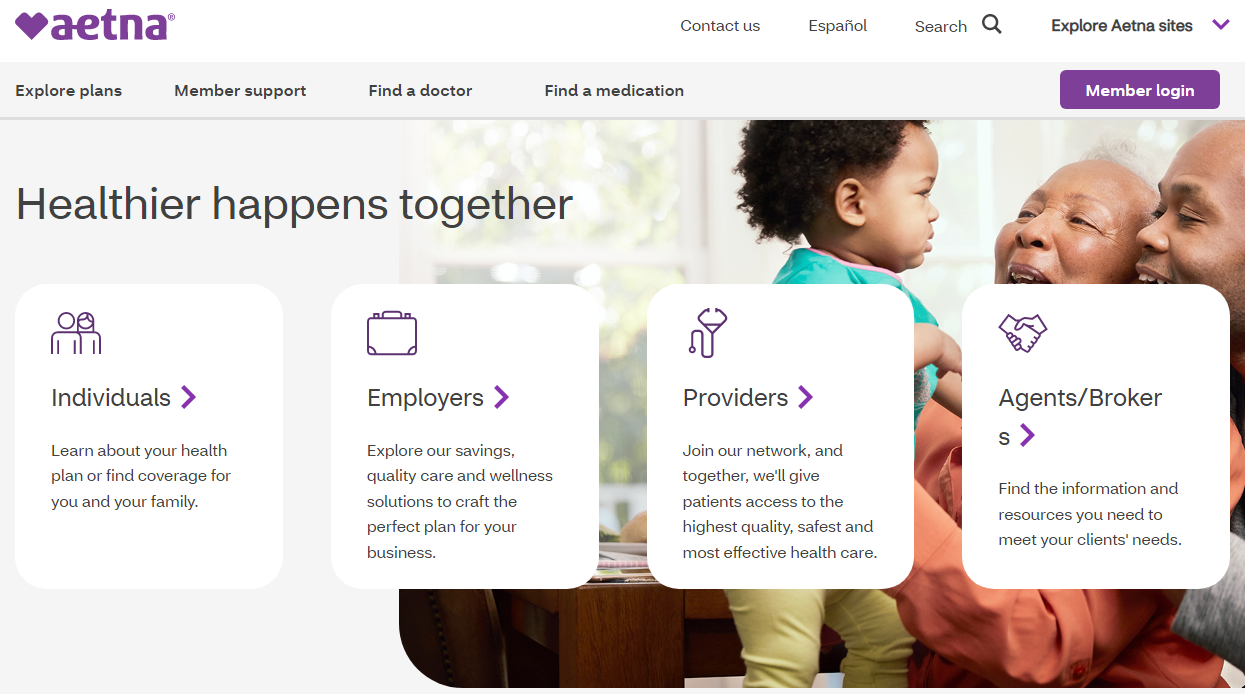A small business is typically defined as an employer with one to 50 employees, excluding the owner and their spouse or immediate family, when it comes to health insurance coverage. However, some states and private organizations define small businesses as those with one to 100 employees. With the aid of an agent or broker, you can find ACA-compliant group plans through the Small Business Health Insurance Options Program (SHOP), which you can then offer to your employees.
If you meet the criteria, the Small Business Health Care Tax Credit is only available if you have a SHOP plan. You can find a plan directly on the websites of insurance companies if you can’t find one on the SHOP marketplace.
How Does Health Insurance for Small Businesses Operate?
A small business is one with fewer than 50 full-time employees (FTE), according to the Affordable Care Act (ACA), though some states have their own definitions. For instance, California defines small businesses as those that employ no more than 100 FTE. Although it is not required by law for small business owners to offer health insurance to their employees, there are guidelines for those who do.
A small business owner signs up for a group health insurance plan provided by a private insurance provider and then provides their staff with the option to do the same. Employees are typically responsible for their deductibles, copays, and any services not covered by the plan, while the employer contributes to a portion of their monthly premiums.
What are the minimal conditions for submitting an application for California Small Business Health Insurance?
Small business owners are not required to offer their staff health insurance benefits. If they decide to do so, they must adhere to the conditions outlined by the ACA below. The states’ requirements might be different.
- Inclusivity.
All employees, not just managers or any other group, must have access to health insurance.
- Protection of necessary medical benefits.
According to the ACA, a small business owner’s health plan must cover essentials like emergency services, prenatal care, maternity and newborn care, outpatient care, prescription drugs, and more.
- Required minimum.
In order to be eligible for the Small Business Health Care Tax Credit under the Affordable Care Act, small businesses must contribute at least 50% of the monthly premium costs of the plans they offer. States typically demand a minimum level of employee participation in health insurance plans provided by small businesses, according to an insurance broker in Montebello, California, in addition to these regulations. The reasoning behind this is that if a company has 10 employees but only enrolls 3, it’s likely that those three are seriously ill. Total enrollment should be made up of a variety of people with various health conditions to more fairly distribute the costs.
Health insurance premiums for small business owners
According to the Kaiser Family Foundation’s 2021 Employer Health Benefits Survey, the average monthly cost for small business owners is $547 per employee and $1,175 for family coverage.
The type of plan, the age and health of the workers, and other variables all affect how much it will actually cost. A year with high employee health care costs could result in the insurance company setting its health insurance rates higher the following year.
The elements to take into account when selecting small business health insurance.
1. Your options for purchases.
A small-group plan can be purchased directly from an insurance provider, via a broker, Covered California, or through the SHOP marketplace. If you purchase a SHOP plan, you might be eligible for the Small Business Health Care Tax Credit. SHOP plans can be purchased directly from the insurance providers or through a broker who has earned the SHOP certification.
2. Every plan complies with the ACA.
No matter where you purchase the plan, all new small-group plans as of January 2014 are ACA compliant. Small-group regulations in California apply to organizations with fewer than 100 workers.
3. Medical history of the employee is unimportant.
The medical history of the group cannot be used by health insurance providers to determine premiums for small-group plans that comply with the ACA. The difference between premiums for older and younger employees cannot be greater than three times.
4. Benefits of the plans are precisely defined.
All small-group plans in California that comply with the Affordable Care Act (ACA) must fall under one of the four metal tiers and offer the ACA’s essential health benefits.
California’s Best Health Insurance Providers for Small Business Owners
- Aetna.

Our top recommendation for self-insured funding options is Aetna if you’re looking for increased plan flexibility and the potential for bigger savings. Self-funding with Aetna can reduce your monthly expenses by up to 25%, and the insurer will give your company 50% of the surplus. Stop-loss insurance safeguards you from prohibitive costs at the same time. Employees can also open HSA accounts and receive many MinuteClinic services for free. Just be aware that not all fully insured groups receive the same advantages.
Members of self-insured plans can also take advantage of a variety of tools from Aetna, such as a practical mobile app, virtual care through Teladoc, and online fitness classes. Additionally, the company’s financial strength is rated A (Excellent) by AM Best, and its commercial plans have an average NCQA star rating of 3.3, which indicates above-average member satisfaction. Additionally, you can obtain group dental insurance from the provider. Group insurance through Aetna isn’t offered everywhere, though.
2. UnitedHealthcare.

You are able to give your employees a range of plan type options with UnitedHealthcare. Even when you decide to include extra coverage like vision, dental, hearing, disability, and absence benefits as well as supplemental, pet, and life insurance benefits, it offers bundled savings. The only program of its kind in the country is provided by UnitedHealthcare, and it is specifically tailored for part-time and seasonal employees.
Traditional major medical coverage options include level-funded and fully insured plans, as well as a less expensive level-funded minimum essential coverage option. Additionally, UHC provides a range of workplace wellness programs, including incentives for physical activity and a free online weight loss program. A discount program is also included in group health plans.
With an average NCQA rating of 3.5 stars and an A+ (Superior) financial strength rating from AM Best, the highest rating of any of the featured providers on this list, UnitedHealthcare also enjoys relatively strong third-party ratings. Regional differences exist in the company’s customer satisfaction rating according to the J.D. Power 2022 U.S. Commercial Member Health Plan Study.
3. Kaiser Permanente.

Of all the insurers we looked at, Kaiser Permanente received the highest ratings for member experience from third parties. It has a 4.3-star NCQA rating on average (higher than all other providers). Furthermore, it ranked first for customer satisfaction in five out of 22 regions, which is noteworthy given that it is only offered in eight states and Washington, D.C. Additionally, Kaiser provides a variety of health plan choices, including deductible HMOs and PPO plans that can be combined with health savings accounts or other health reimbursement arrangements. Additionally, it is affordable to add additional benefits for your employees, such as chiropractic and acupuncture in addition to dental and vision coverage.
But only California, Colorado, Georgia, Hawaii, Maryland, Virginia, Oregon, Washington, and the District of Columbia offer Kaiser Permanente plans. Additionally, Kaiser is less hands-on than some Blue Cross Blue Shield companies when it comes to particular workplace programs, despite the fact that the company offers resources and support for establishing a workplace wellness program. However, the business does provide a number of fitness discounts, and members can speak with a wellness coach for free.
Conclusion
The law does not require small business owners to offer health insurance to their staff. With that said, if you choose to provide health insurance to your employees, be sure to understand how your state defines a small business because it will affect the requirements for what you must offer.

